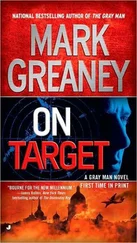Hwang had never heard anything like this in his life. Of course his office had made requests for information from foreign intelligence, but what Ri was offering was on a scale exponentially larger than anything he had ever considered. Ri was outlining just exactly all the things he needed to create a successful mining and processing operation at Chongju. “Incredible,” he said. “If you can do this, we have a chance.”
“So, you agree?”
What did he have to lose? “I agree.”
Ri said, “I need to establish partnerships outside of our nation, to create the conduits necessary to make this happen. If you had any suggestions for companies or personalities I should seek out to join us in our endeavor, I would like to hear them.”
Hwang nodded instantly. “One name comes to mind. You get him involved as a benefactor, and you and I might just make this happen.”
The intelligence chief raised his eyebrows. “Tell me.”
“Óscar Roblas de Mota.”
Ri nodded thoughtfully. He knew all about this man. “Óscar Roblas. Why, yes. Of course.”
13
Present day
The small house on Jayhawk Street in Annandale, Virginia, showed its first signs of life most mornings at six. Forty-three-year-old Annette Brawley tapped the alarm clock, rolled up into a sitting position on her bed, and flipped on a light that shone through the curtains, out across the tiny yard and into the narrow street. She spent a few moments sitting on her bed, rubbing her eyes and dealing with the frustration that today was only Tuesday, and then she stood on tired legs.
As soon as she was up she made her bed. It was an old habit from her days in the Army, more than eight years removed now, and the process was especially quick and straightforward because no one slept with her, so she needed to remake only her side.
She then entered her kitchen and hit the button on the coffeepot, and grabbed a carton of eggs from the fridge. She pulled two cereal bowls out of the cupboard—this was about the time her head cleared enough for her to shut off her body’s autopilot and actually think about what she was doing.
She fixed breakfast for two, then at six-fifteen on the nose she walked down the narrow hall to the back of the house, took a narrow flight of stairs up, and then knocked on the door at the top of the landing. After knocking she opened the door, because she knew knocking was only a formality and no one would answer, and she would therefore need to use more active measures to accomplish this daily task.
Stephanie Brawley was sixteen, and she liked getting up in the morning even less than her mom did. She also didn’t like her mom very much, so she was doubly surly each and every time she awoke to a hoarse and tired female voice.
“Time to get up, Steph. I made you some eggs.”
“I hate you,” Stephanie croaked.
“I know, honey,” Annette calmly replied, wiping sleep from her eyes as she turned away. “I made you some cereal, too.”
“Turn off the light!”
Annette left her daughter’s room with the light on. She was subjected to a litany of insults as she retreated back downstairs to her coffee cup. Getting yelled at each morning had become part of her daily routine. She didn’t like it, it saddened and depressed her, but she did her best to keep a bit of perspective. Annette herself had lived with her mom after her parents divorced, and she’d been no great joy to be around during her teenage years.
No, she’d probably been rough on her mother, and now as Stephanie berated her each morning, she tried to tell herself this phase was just the payback of karma and it would pass soon enough.
Annette had lived alone since her husband died in 2007. He was in the Pennsylvania National Guard, serving in Afghanistan as a staff sergeant working as an intelligence analyst at his battalion headquarters in Nangarhar Province. He was far from any combat, and Annette thought he must have had one of the safer military jobs in the country, but his armored Humvee ran over an explosively formed projectile and he died instantly.
Annette was Army intelligence herself at the time, in active duty and serving just west of her husband in Kabul. Eight-year-old Stephanie had been home in Pittsburgh with Annette’s mother, and it had been doubly hard on her that her own mother was not home at the time she heard about her father’s death.
Yes, Stephanie’s awful teenage-years behavior had an explanation, but Annette didn’t let her use it as an excuse.
—
After the trials of her daily morning ordeal getting her daughter up and out the door to school, Annette actually enjoyed the short drive down to Springfield to work. She was no longer in the Army, but shortly before eight a.m., she pulled through the gates of Fort Belvoir. A few winding roads took her to her destination: the third-largest government building in the Washington area behind the Pentagon and the U.S. Capitol, the National Geospatial-Intelligence Agency.
NGA is one of America’s sixteen intelligence agencies under the Office of the Director of National Intelligence, and certainly one of the least well known. Formerly the National Imagery and Mapping Agency, NGA is dual-hatted as a combat support agency for the Department of Defense as well as being a member of the U.S. intelligence community. The agency was only a few years old, but tremendous resources had been poured into this facility and another massive building in St. Louis.
The organization received $5 billion a year in federal funds, and employed thousands of personnel, both military and civilian.
After showing her badge to a guard and then running it over a scanner she put her purse on a table for inspection and went through a metal detector. A long walk down a hallway with other employees—about a third of whom wore military uniforms—took her to a down escalator, above which ran the motto of the organization written out high on the wall:
KNOW THE EARTH . . . SHOW THE WAY . . . UNDERSTAND THE WORLD.
She passed into the massive atrium of the building—she’d read somewhere you could lay the Statue of Liberty on its side in here—and she scanned her badge at a reader in front of one of a half-dozen glass doorways in the center of the room that led to a bank of elevators. She took a ride to the fourth floor, then crossed the suspended hall over the atrium, made her way down another corridor, and scanned her badge a fourth time to get into her small office.
Annette was an imagery specialist for the NGA; she spent her days looking over all types of pictures using imagery manipulation and enhancement software, as well as compiling and analyzing other bits of data. Then she wrote interpretative reports of what she found, and these were delivered to the NGA’s mission partners: policy makers, war fighters, and first responders.
Although she recognized her work wasn’t going to change the world, she found it interesting nonetheless, and she took solace in the fact she was damn good at it. Annette had spent her entire adult life focused on intelligence. After a full career in Army intel she had gotten hired here as a civilian analyst. She loved her work and her colleagues and the mission itself.
As fractured and stressful as her home life was—she was, after all, a widow with a teenage daughter with issues—Brawley took comfort in the fact she could come here every day, devote herself totally to the imagery and data points of a faraway place she would never visit personally, and build a coherent picture about what was going on there that just might help her country in some small way.
Her office was in the East Asia Department and her focus was North Korea, and while most of the others in her office spent their time on the “sexy stuff,” fixated on either the opaque and mysterious government there or the nuclear and missile programs, Annette Brawley was in the economic section, and she concentrated almost exclusively on the DPRK’s mining industry.
Читать дальше












